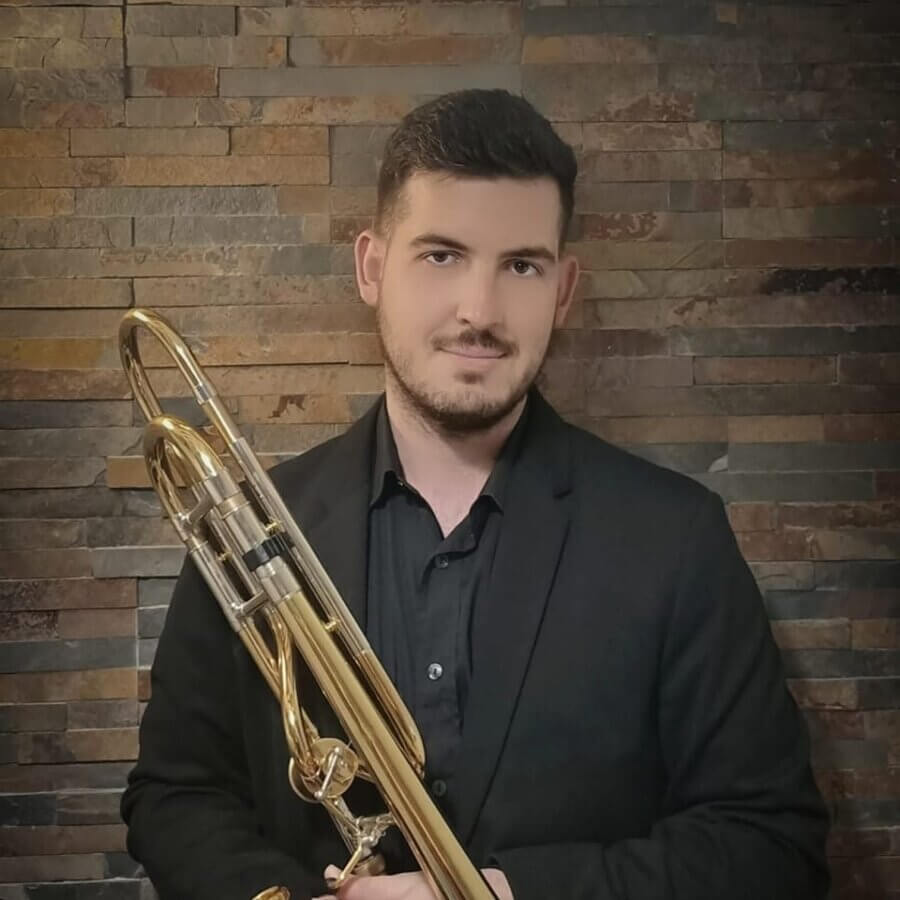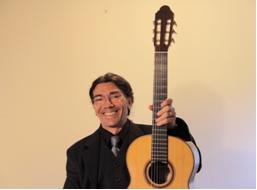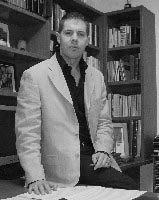The academic community of CONSMUPA is formed by 80 professors, 300 students and 11 administration and service staff members. The premises are open from 8:00 a.m. to 10:00 p.m.
Each academic year there are about 75 chamber music ensembles, two orchestras (one symphonic and the other dedicated to chamber music), a symphonic band, brass ensembles, as well as saxophone and percussion bands. Cello, tuba and trumpet bands function as extracurricular formative activities.
The Development and Communication Department organizes over 120 public concerts a year so that students can gain real artistic experience performing as a soloist or in ensembles, which will improve their chances in the world of work.
The premises are equipped with 50 classrooms, 20 practice rooms, a concert hall, a chamber music room, a library (with music and video resources), a multi-purpose room, an electro-acoustic laboratory and a computer room.
More than 170 courses, either practical or theoretical (compulsory or elective), are offered. There are 7 teaching departments: Singing and Ensembles, Composition and Theory of Music, Improvisation and Accompaniment, String Instruments, Keyboard Instruments, Woodwind Instruments, and Brass and Percussion Instruments.
Each year, CONSMUPA invites esteemed collaborating professors to give courses and master classes, so that the students get to experience different ideas and ways of working, as well as develop their musical conscience and positive self-criticism. There are also two annual meetings dedicated to intensive practical training in the symphonic band / orchestra in collaboration with different conductors.
Studying at CONSMUPA
The academic community of CONSMUPA is formed by 59 professors, 200 students and 11 administration and service staff members. The premises are open from 8:00 am to 10:00 pm.
Our institution offers several chamber music ensembles opportunities: the symphony orchestra, a symphonic band, brass ensembles, saxophone ensemble, clarinet ensemble, flute ensemble, basson-oboe ensemble, traditional music ensemble… that function as extracurricular formative activities, as well as another mixed chamber music groups.
Each year CONSMUPA invites esteemed collaborating professors to give courses and Masterclasses. Students have the opportunity to work personally with guest teachers, selected from among the top professionals on the international scene (through Erasmus+ and Oviedo concerts program), as well as the chance to know different performance styles and appreciate different techniques. This programme complements the core curriculum taught in the different departments and poses the teaching of music from a diverse and pluralistic approach.
The practical approach is one of the fundamental pillars of our institution. Students will have the unique opportunity to collaborate with our local Orchestras (OSPA and Oviedo Filarmonía), Fundación Opera de Oviedo, Banda ciudad de Oviedo… immersing themselves in a fully professional environment.
Bachelor degrees
CONSMUPA has been implementing the Bologna structures since 2010. All Bachelor degrees are a duration of 4 years (240 ECTS). The following Bachelor degrees have been established: Composition, Conducting, Performance (Accordion, Voice, Organ, Strings/ Wind instruments/Percussion, Guitar, Piano) and Pedagogy (Accordion/Guitar, Voice/Strings /Wind instruments/Percussion, Organ, Piano).
There are 3 types of courses: basic compulsory (A), major compulsory (B) and elective (O). Students must enrol in 60 ECTS during their first year of study and reach 240 ECTS at the end of the studying period. The number of ECTS of Elective Courses to be taken depends on the major (see the curricula below).
Major
Major in Composition
Major in Conducting
Performance – Accordion
Performance – Voice
Performance – Harpsichord / Organ
Performance – Strings / Wind Instruments / Percussion
Performance – Guitar
Performance – Piano
Pedagogy- Accordion / Guitar
Pedagogy – Voice / Strings / Wind Instruments / Percussion
Pedagogy- Harpsichord / Organ
Pedagogy – Piano
The general objective of Bachelor’s degree in music is the qualified training of professionals who master the knowledge of music and adopt the necessary attitudes that make them competent to integrate into the different professional fields of this discipline. These studies are instituted within the European Higher Education Area and the Bologna Plan as an university degree (Grado).
Organization Chart
MANAGEMENT TEAM
Director:
Mr. Fernando Agüeria Cueva
Secretary:
Mr. Martín Martín Acevedo ![]()
Head of Studies:
Mr. Fernando López Blanco ![]()
Mrs. María Ángeles Villamor Martínez ![]()
LIBRARY:
Head of Library:
Mrs. Mercedes Fernández Menéndez
DEPARTMENTS
String Department
Head of the department:
Mr. Miguel Bobo de la Peña -Guitar- ![]()
Faculty:
Mr. Manuel Ballesteros Taboada -Double bass- ![]()
Mr. Rolando Serafín Bernal Martínez -Violin- ![]()
Mr. Alexei Mijlin Grodensky -Violin- ![]()
Mr. Luis Magín Muñiz Bascón -Viola- ![]()
Mr. Yuri Nasushkin Labovsky -Violin- ![]()
Mrs. Bogumila Rekucka Zalewska -Violoncello- ![]()
Mrs. María Ángeles Villamor Martínez -Violoncello- ![]()
Wood-wind Department
Head of the department:
Mr. Alberto Veintimilla Bonet -Clarinet- ![]()
Faculty:
Mrs. Laura Burguillo Sánchez -Oboe- ![]()
Mrs. Julia Estévez Salgueiro -Flute- ![]()
Mr. Germán Martínez López -Fagot- ![]()
Mr. Antonio Ribera Soler -Clarinet- ![]()
Mr. Guillermo Rodríguez Palacio -Saxophone- ![]()
Mrs. Julia Segovia Verdejo – Saxophone- ![]()
Mrs. Carmen Viejo Llaneza -Flute- ![]()
Bagpipe-
Brass and Percussion Department
Head of the department:
Mr. Alfonso Mollá Castells -Tuba- ![]()
Faculty:
Mr. Pablo Camblor García -Trumpet- ![]()
Mr. Vicente Muñoz Cataluña -Trombone- ![]()
Mr. José Rodrigo Roglá -Horn- ![]()
Mr. José Antonio Vázquez Martínez -Trumpet- ![]()
Mr. José Ramon Vidal Pereira -Percussion- ![]()
Keyboard Department
Head of the department:
Mr. Fernando Orfila Abadía -Piano-
Faculty:
Mr. Fernando Artime García -Organ- ![]()
Mr. Manuel Cabo González -Piano- ![]()
Mr. Martín Martín Acevedo -Piano- ![]()
Mrs. Garazi Navas Mundiñano -Accordion- ![]()
Mrs. Paula Raposo Rodríguez -Piano- ![]()
Voice and Ensembles Department
Head of the department:
Mr. Antonio Ribera Soler -Clarinet- ![]()
Faculty:
Mrs. Rebeca Arniella Casar -French and italian ![]()
Mrs. Arantxa Atutxa Gutiérrez – ![]()
Mrs. María Begoña García Sánchez -Voice- ![]()
Mr. Paulino Jardón Gurruchaga -Chamber music- ![]()
Mrs. María de las Mercedes Polledo Carreño -English and german- ![]()
Mr. Manuel Real Tresgallo -Conductor- ![]()
Mr. José Manuel San Emeterio Álvarez -Choir- ![]()
Mrs. Bogumila Rekucka Zalewska -Chamber Music- ![]()
Composition and Music Theory Department
Head of the department:
Mr. Manuel Martínez Burgos -Composition- ![]()
Faculty:
Mr. Fernando Agüeria Cueva
Mr. Jorge Carrillo Fernández -Composition- ![]()
Mrs. Olivia Fernández Blázquez -Pedagogy- ![]()
Mrs. Andrea García Alcantarilla -History- ![]()
Mr. Rubén García Martín -Composition- ![]()
Mr. Abraham González Fernández -Composition- ![]()
Mr. Fernando López Blanco -Composition- ![]()
Mr. José María Rodríguez Gómez -Technology- ![]()
Mrs. Gemma Mª Salas Villar -History- ![]()
Mrs. Sara Tovar Sánchez -Pedagogy- ![]()
Improvisation and Accompaniment Department
Head of the department:
Mrs. Beatriz Rodríguez Enríquez ![]()
Faculty:
Mr. Pablo Eisele ![]()
Mr. Jorge Diego Fernández Valera ![]()
Mrs. Elena María García Álvarez ![]()
Mrs. Laura García Cobos ![]()
Mr. Enrique Miguel Moreno Iglesias ![]()
Mrs. Irina Moussatova ![]()
Mrs. Eva Roces García ![]()
Mr. Fernando Santirso González ![]()
Mr. Marcos Suárez Fernández ![]()
Mr. Héctor Velasco Rubín de Célix ![]()
Syllabus
Incoming students
Application
NEW Deadline: May 5th, 11 p. m.
The Application must be sent by AEC APPLICATION SYSTEM – EASY with:
- Learning Agreement
- Curriculum Vitae
- Nomination (by the International Relations Coordinator of your school)
- Link to access a recording in video format, during between 15 and 30 minutes and presenting 3 different musical styles
The selected students will attend a free Spanish class at the University of Oviedo.
For further information, contact:
Incoming teachers
The Erasmus Programme allows to exchange educational experiences making it easier for teachers from other Conservatories visit our centre. In this way, knowledge networks are built and the exchange of innovative practices is enabled and consequently, benefit of all.
To gain maximum exposure, the visiting professors lessons will be aimed at all of students of the instrument or specialty that is taught and open to the rest of the students interested in them.
If you want to make an Erasmus+ Mobility in our centre, you can contact us at: (Elisa García). Please, send us a brief CV, the information about course content that you would like to teach and a proposal of dates. You will receive an answer on our part within 15 days.
We look forward to welcoming you!
Partner institutions
Practical information for international students
Arriving in Oviedo
a) The Airport of Asturias (OVD) is 47 km from Oviedo. There are flights to and from London (Stansted), Paris (Charles de Gaulle), Lisbon; Madrid, Barcelona, Majorca, Malaga, Seville, Granada, Valencia, Alicante, Lanzarote and Tenerife, as well as other internal and international flights depending on the season. For more information click here
Once at the airport, you can take a taxi to Oviedo (which will be very expensive) or you can take a bus and will get you downtown in 45 minutes. There are buses from the Airport to Oviedo from 7.00 to 23.00 every hour. You can get more information here.
b) You can also fly to Santander airport (193 km far from Oviedo) from London (Stansted), Brussels (Charleroi), Edinburgh, Dublin, Dusseldorf (Weeze), Milan (Bergamo) and Rome (Ciampino). There are 2 buses every day from the airport to Oviedo (it takes about 3 and a half hours) or you can take a bus to downtown Santander and catch another one to Oviedo from there. For more information click here.
c) There are many buses from Madrid and some from other major cities. You can check it here.
d) You can also travel by train. You will find more information at Renfe.
Looking for Accommodation
You will have to find your own accommodation for your stay in Oviedo. However, if you send an announcement looking for accommodation to the staff of the International Office, they will hang it on the notice boards of the Conservatory. Many international students find accommodation that way if they send the announcement early enough.
Transport
Information on public transport, current ticket prices and discounts for students is available on the following website
To get a student discount, you must demonstrate that you are currently enrolled in a studies programme. That won’t be a problem once you arrive at the Conservatory, as you will be given the Conservatory’s student card.
For travelling around the region, the most popular options are buses and trains: Spanish national railways (RENFE) and regional narrow gauge lines (FEVE).
Useful websites:
Insurance
All incoming exchange students admitted shall register at the International Relations Office (IRO) of the CONSMUPA upon arrival and present proof of medical insurance. EU students shall present their European Health Insurance Card. It is compulsory for students from countries that have not signed any health service agreement with Spain or who are not covered by public insurance in their countries of origin to have a private health and accident insurance.
Incoming students admitted for training shall also be insured against accidents and third party liability.
Starting your studies at CONSMUPA
If you have been admitted into CONSMUPA within an International exchange scheme (for example Erasmus) you should get in contact with the International Relations Office () who will help you with all the paperwork and practical issues that might arise.
You can ask for a “Peer Mentor”: this will be a CONSMUPA student who will pick you up at the airport/station, will help you to find accommodation (although we advise you to find it before your arrival) and will help you during the first days of your stay. In exchange, we will ask you to fill in a written questionnaire on their performance as a Peer Mentor a month or two after your arrival in Oviedo. Unfortunately, we cannot guarantee that you will have a “Peer Mentor”: it depends on the availability of CONSMUPA students on your arrival.
Before your arrival in Oviedo, we ask you to tell the International Relations Office your arrival date and time. Then a time will be fixed for a meeting with the staff of the IR Office at the Conservatory. You will be given the CONSMUPA student card and your schedule, and will be able to ask any questions about your stay that you might have. You should bring the following to this meeting:
- A passport photo.
- Your ID card / passport.
- Your visa (if you come from a country which requires it).
- Your health insurance card.
You will be asked to fill in a registration form.
Language requirements
Spanish is used in all courses and lessons at CONSMUPA, although for international exchange students some instrumental or chamber music lessons may be given in English (if the teacher agrees).
We offer a 3-ECTS year-long Spanish for Musicians course. The University of Oviedo organizes intensive courses for Erasmus students twice a year (October, February) and the CONSMUPA international students are allowed to attend one of these. For more information ask the IRO.
Academic calendar
Culture
Oviedo has a very rich cultural life, especially musically speaking: there are 2 professional orchestras, an opera season, a zarzuela season, several festivals (piano, dance)… For some of these events you will get a 50% discount on the ticket price if you buy it on the day of the performance and show your CONSMUPA student card.
Sports Centres
A list of municipal sports centres in Oviedo is provided here.
Tourism
Asturias is a very attractive region for people who enjoy active tourism.
There are numerous mountaineering groups that organize regular excursions. For more details, please consult the official websites of particular groups.
The seaside area of Asturias is also an excellent windsurfing and other water sports zone.
Places of cultural importance in Asturias, apart from Oviedo itself, include Gijón, Avilés, Covadonga, Llanes, Cudillero…
For more information, please consult this website.
Climate
The climate in Oviedo is rather mild, with mean temperatures around 5º – 10º C in December – February and possibly over 25º C in June – August. Due to its closeness to the ocean, the atmosphere is rather humid with a lot of rain during the year. In winter some snowfall may occur.
(Warning: this information is subject to change)
Looking for accommodation
You will have to find your own accommodation for your stay in Oviedo. However, if you send an announcement looking for accommodation to the staff of the International Office, they will hang it on the notice boards of the Conservatory. Many international students find accommodation that way if they send the announcement early enough.
Here you can find some accommodations, such as residences, apartments, hotels…
Student residences: Click here
Hotels: We kindly recommend searching on internet portals because there you can book the rooms sometimes for even more reasonable prices. E.g. visit these websites: Booking , Atrapalo, Tripadvisor, Trivago or Hostelworld
Another option would be to rent an apartment. Below, we attach some links of the best web pages for apartment rentals: Fotocasa, Idealista or Yaencontre



 Cursa sus estudios musicales en el Conservatorio Superior de Música de Valencia bajo la dirección del profesor D. José Rosell. Realiza cursos de perfeccionamiento de la técnica instrumental con los profesores M. Höltzel (Salzburgo), A. Haltead (Londres) y Vicente Zarzo (Valencia).
Cursa sus estudios musicales en el Conservatorio Superior de Música de Valencia bajo la dirección del profesor D. José Rosell. Realiza cursos de perfeccionamiento de la técnica instrumental con los profesores M. Höltzel (Salzburgo), A. Haltead (Londres) y Vicente Zarzo (Valencia).


 Born in Madrid. In a short time, he moved with his family to Almería and Cádiz, whereby he began his Piano studies at Academia de Bellas Artes Santa Cecilia in El Puerto de Santa María and the Real Conservatorio Profesional de Música Manuel de Falla. Later, he furthered his studies at Conservatorio de Música Amaniel, in his hometown, and the Real Conservatorio Superior de Música de Madrid with Fernando Puchol, where he obtained three Graduation Prizes in Piano, Chamber Music and Musical Analysis, as well as the bachelor’s degree in Piano, Chamber Music and Improvisation.
Born in Madrid. In a short time, he moved with his family to Almería and Cádiz, whereby he began his Piano studies at Academia de Bellas Artes Santa Cecilia in El Puerto de Santa María and the Real Conservatorio Profesional de Música Manuel de Falla. Later, he furthered his studies at Conservatorio de Música Amaniel, in his hometown, and the Real Conservatorio Superior de Música de Madrid with Fernando Puchol, where he obtained three Graduation Prizes in Piano, Chamber Music and Musical Analysis, as well as the bachelor’s degree in Piano, Chamber Music and Improvisation. Nace en Madrid. Pronto su familia se traslada a Almería y a Cádiz, donde inicia sus estudios de Piano en la Academia de Bellas Artes Santa Cecilia de El Puerto de Santa María y el Real Conservatorio Profesional de Música Manuel de Falla de Cádiz. Posteriormente, continúa en el Conservatorio Profesional de Música Amaniel de su ciudad natal y el Real Conservatorio Superior de Música de Madrid, estudiando con Fernando Puchol, donde obtiene tres Premios de Honor de Fin de Grado en Piano, Música de Cámara y Formas Musicales, el Título de Profesor Superior de Piano y los Títulos Superiores de Música de Cámara e Improvisación.
Nace en Madrid. Pronto su familia se traslada a Almería y a Cádiz, donde inicia sus estudios de Piano en la Academia de Bellas Artes Santa Cecilia de El Puerto de Santa María y el Real Conservatorio Profesional de Música Manuel de Falla de Cádiz. Posteriormente, continúa en el Conservatorio Profesional de Música Amaniel de su ciudad natal y el Real Conservatorio Superior de Música de Madrid, estudiando con Fernando Puchol, donde obtiene tres Premios de Honor de Fin de Grado en Piano, Música de Cámara y Formas Musicales, el Título de Profesor Superior de Piano y los Títulos Superiores de Música de Cámara e Improvisación.
 Inicia sus estudios musicales como niño cantor en la Escolanía del Real Sitio de Covadonga y con el trompetista de jazz Gonzalo Casielles, para continuarlos posteriormente en los Conservatorios Superiores de Oviedo, Madrid y Salamanca; así como en numerosos cursos nacionales e internacionales.
Inicia sus estudios musicales como niño cantor en la Escolanía del Real Sitio de Covadonga y con el trompetista de jazz Gonzalo Casielles, para continuarlos posteriormente en los Conservatorios Superiores de Oviedo, Madrid y Salamanca; así como en numerosos cursos nacionales e internacionales.






